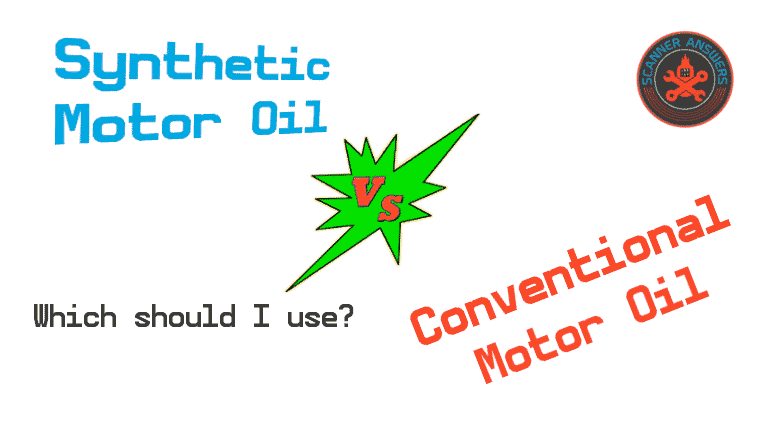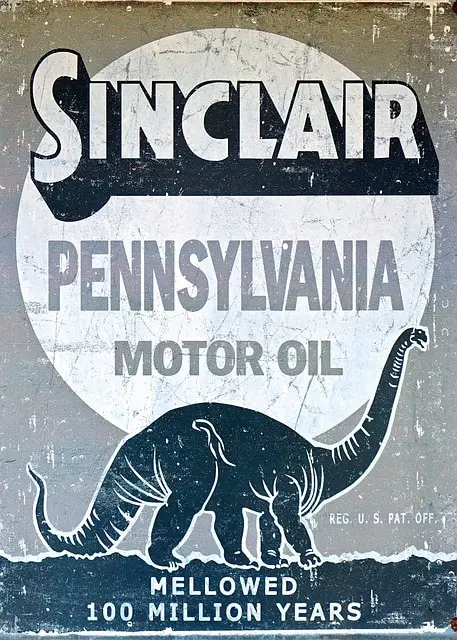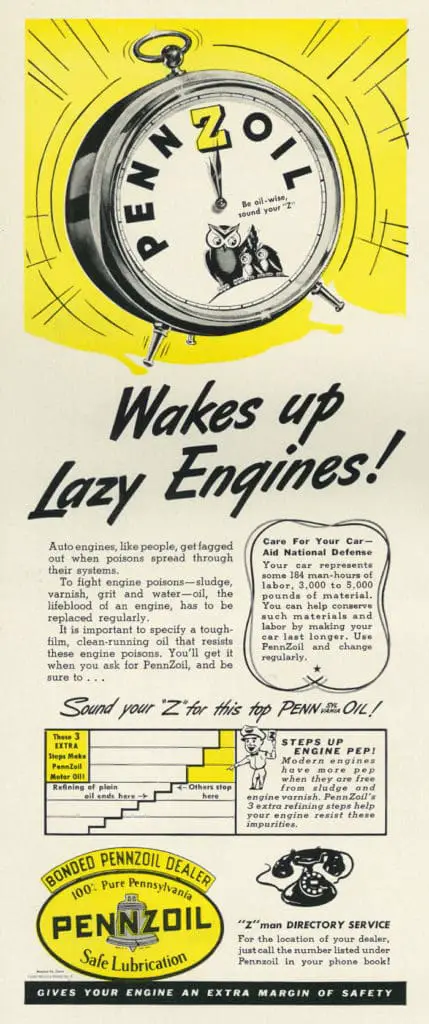
Rev up your engines! We’re talking about Motor Oil today
When it’s time to change the oil in your car, should you use synthetic or conventional motor oil? In order to arrive at the proper conclusion, it is best to dig deeper and find out the real difference between synthetic and conventional motor oil.
Hi, Matt here. A few months back we wrote a guide on the best synthetic motor oil your vehicle, check it out if you haven’t read it. Well that sparked a lot of questions because some of our friends have never run synthetic oil. So we figured we’d put together this handy guide and talk about the common questions people have about synthetic oil.

There’s no question about the importance of choosing the right type of engine oil at each oil change. The market is literally brimming with all sorts of choices when it comes to engine oil. But there’s a valid reason for this: different engines demand different grades of engine oil. Not sure what I mean here? Check the owner’s manual of your car.
If the manual states your car needs synthetic oil, it is probably better to stick with synthetic oil for the rest of the useful life of your vehicle. This only means the engine demands better protection to deliver outstanding performance and fuel economy in both hot and cold weather. Using conventional mineral-based oil in an engine that requires synthetic oil might result in premature wear and tear and a shorter service life. Seriously.
What’s the difference between synthetic and conventional oil?
It is hard to determine the difference between synthetic and conventional oil by simply looking at the product or touching it with your finger. The main difference between the two goes down skin-deep at the molecular level (and the pocket book level!).
Mineral oil is derived from organic and natural crude oil. Synthetic oil is derived from artificial chemical compounds. Synthetic motor oil consists of three basic parts:
- Base oil derived from pure mineral oil.
- High-performance additives (usually in powder form) that can change the molecular structure of the oil depending on any given temperature; and
- The carrier oil that is utilized to evenly distribute the performance additives to the base oil.
Synthetic motor oil is thinner than mineral oil but this doesn’t mean it offers lesser protection. In fact, the primary purpose of synthetic oil is to significantly reduce engine wear on cold starts (where a large majority of engine damage occurs) and to reduce the possibility of oil degradation.
On top of that, you’ll usually pay and extra buck or two per quart for synthetic oil. So if your vehicle burns oil, or you don’t run a performance car like a Corvette or Mustang, you can probably save the cash and stick with boring ol’ conventional.
Does synthetic oil last longer than mineral oil?
Yes. Synthetic motor oil is engineered and formulated to offer longer protection than conventional motor oils. Back in the not so olden days of motoring, the recommended oil change interval for engines equipped with conventional mineral oil is 3,000 to 5,000 miles. But with the advent of synthetic motor oils, the recommended oil change interval is from 7,500 miles all the way to 15,000 miles or one year whichever comes first.
Here’s a word of caution: synthetic motor oil is utilized primarily to improve engine protection and NOT to prolong the oil change interval in your vehicle. Always consult the owner’s manual to determine the proper oil change interval in your vehicle whether you are using conventional or synthetic oil.

Is synthetic oil more expensive?
The process of synthesizing powerful cleaning and lubricating additives takes a lot of time and resources. This is the reason why synthetic oil is more expensive than conventional mineral oil. Depending on the brand or formulation, synthetic oil can cost as much as twice (or maybe even more) than conventional mineral oil.
But switching from mineral to synthetic motor oil might be cheaper in the long run. Your car’s engine will run smoother and quieter with synthetic-based oils and will require fewer servicing. The longer oil change intervals will also mean you don’t need to spend more money on labor and oil filters. If you add it all up, you are not only saving money, you are doing the environment a big favor by simply reducing the amount of oil changes at each interval.

Can I switch from conventional to synthetic oil?
Have you heard of the myth that using synthetic oil in an older engine will result to oil leaks? It’s pretty similar to the old adage of losing your eyesight if you sleep with wet hair. It is all just a myth. If an older engine is leaking oil, it is time to change the gaskets and the seals and not put the blame on using synthetic motor oil.
In fact, older engines have a tendency to perform better when filled with synthetic oil. The trick is to utilize the right oil specification. If the engine demands multigrade 10w-40 oil, you should use a synthetic blend with the same 10w-40 viscosity grade.
If you are still wary, you should have your car checked by a professional technician before making the switch.
Can I mix synthetic and conventional motor oil?
Yes, although this is not recommended for obvious reasons. And besides, what’s stopping you from draining the old mineral oil before pouring in a fresh batch of synthetic oil or vice versa?
You can technically mix mineral oil and synthetic motor oil without fear of blowing up the engine. However, doing this will reduce the cleaning the lubricating properties of the synthetic oil. My advice is to not mix mineral oil with synthetic motor oil unless you’re in an emergency (car is running low on oil and all you can find is mineral or synthetic oil). It is also a better idea to fill up the engine with the same brand and type of motor oil if you need to add oil (when the engine is running low on oil).
I’m not in the habit of mixing and matching different types, blends, and brands of oil in my car. If I poured semi-synthetic or synthetic blend oil, I make sure to refill the engine with the same brand of semi-synthetic oil and not switch to mineral or fully synthetic oil.

Can my car run for 10,000 miles in a single oil change if I use synthetic oil?
Yes. However, it is important to understand that lubricant marketers are not in a position to set oil drain intervals. It is important to always follow the recommendations of the engine manufacturer. If the owner’s manual states you need to change the oil every 7,500 or 10,000 miles, stick to it.
If you have an older car that runs fine on conventional oil, make sure to change the oil every 3,000 miles (roughly 5,000 kilometers). But if you always find yourself going over the recommended oil change interval, maybe you should consider upgrading to synthetic oil.
Check out the Castrol EDGE Extended Performance if you want an oil that can last up too 15,000 miles!
Is it safe to put synthetic oil in a high mileage engine?
Yes, it’s totally safe as long as you use the right blend and viscosity of synthetic oil. Examples of the best synthetic oils for high-mileage engines are the Castrol High Mileage Synthetic Blend, Valvoline MaxLife High Mileage, and the Mobil 1 High Mileage Advanced Full Synthetic. All of those products are specifically designed for older vehicles with high mileage motors. Make sure to always change the oil filter when switching from mineral to synthetic oil.
No products found.
Can I switch back to conventional mineral oil after synthetic?
Yes. Switching between oils will not cause any damage to the engine in your car, as long as the engine is designed to run mineral oil in the first place. The only thing to remember at this point is to replace then oil filter before switching back from synthetic to mineral oil.
Should I use supplemental additives in an engine with synthetic ?
No. Synthetic motor oils already contain carefully balanced additives to provide optimum protection and performance. Oil additives will only interfere with the chemical balance of the synthetic oil, which in turn might adversely affect the performance characteristics of the synthetic oil.
Be wary of false claims that oil additives will enhance the properties of the existing synthetic oil in your vehicle. If the technician is insisting on an oil additive, maybe it’s time to walk away and find another mechanic. Oil additives are nothing but a waste of your hard-earned money.
Is synthetic oil better for my car?
It depends. It’s a known fact that Mazda rotary engines are not compatible with synthetic motor oils. In this case, filling up a rotary engine with synthetic oil will only lead to premature engine wear and damage.
But in general, synthetic oil is better for your car. It can flow easier in cold weather and protect the motor against harmful cold starts even in the dead of winter. Synthetic motor oil is highly resistant to viscosity breakdown caused by extreme heat and friction inside the motor.
If you have a suped-up hotrod that you are trying to squeeze max horsepower out of, then you’ll want to look into a high performance oil like some Royal Purple or Amsoil.
Conclusion
Synthetic motor oil is also resistant to oil oxidation and sludge. What this all means is the engine will run smoother and quieter for a longer time. Add the benefit of fewer oil changes and it is easy to discern why synthetic oil is the best choice for your vehicle.
Pro tip – If you read out 454 motorhome engine oil guide, you know that synthetic blend oil is great for older motors!When in doubt, consult the owner’s manual of your vehicle. Remember to follow the oil change intervals whether using conventional or synthetic oil. Following these simple rules is enough to extend the service life of your vehicle.
-Matt